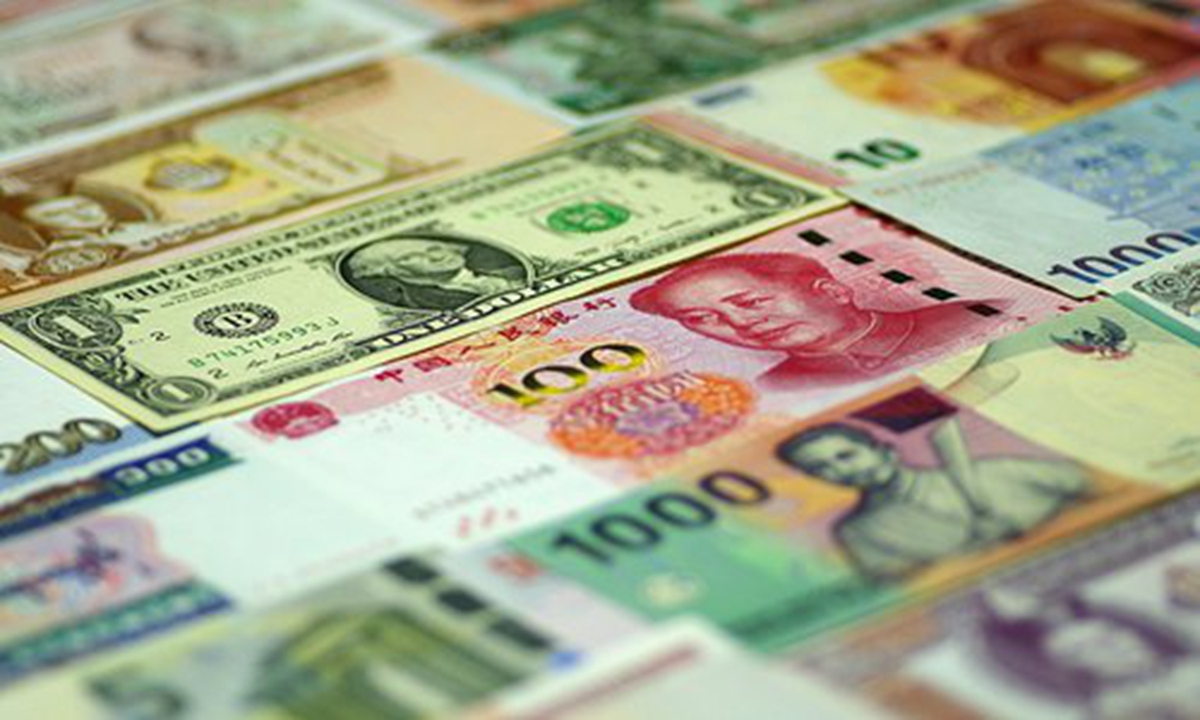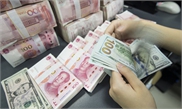
File photo
Buttressed by the sustained economic recovery from COVID-19, the Chinese currency, or yuan, has seen a stellar run gaining much value against the world's other currencies in recent months. A steadily rising Chinese currency could also help easing economic and trade frictions between Beijing and incoming Joe Biden administration.On Wednesday, the offshore yuan rate strengthened to break the 6.50 mark to hit 6.4927 against the US dollar by midday, marking a new high since June 2018. So far this year, the Chinese currency has appreciated more than 6.4 percent in offshore markets.
On the same day, the People's Bank of China set the central parity rate for the yuan, or daily trading reference, at 6.5311 against the US dollar - marking the strongest yuan in two and a half years representing an 8 percent gain over the US dollar this year.
From May, the yuan has maintained a strong upward trajectory unseen for several years. While 6.50 has been considered a psychologically important threshold for the yuan's exchange rate, a relatively strong yuan doesn't seem to have posed negative impact on the Chinese economy.
In the past, Chinese economists used to express concerns over the pressure a strengthening yuan may put on the country's exports, which tends to make Chinese exported products more expensive and less competitive in the international markets.
Nevertheless, China's upbeat export performance in the past months has quelled much of that concern. In November, Chinese exports rose at the fastest pace since February 2018, jumping 14.9 percent year-on-year, according to data released by the General Administration of Customs on Monday.
The yuan's performance reflects China's strong economic fundamentals. With the steady economic recovery in China, international investors feel increasingly optimistic about the Chinese market, which has continued to attract inflows of foreign capital over the past months. All these factors are expected to further contribute to the strengthening of the yuan.
As long as the China's policymakers can curb the downside risks of the strong yuan, a rosy market-driven outlook for the currency is expected to remain in the months to come. And, a Goldman Sachs economist recently predicted that the yuan could eventually strengthen to reach 6.3 against the dollar in 2021.
The stability of the yuan will not only benefit China's financial market reform, but also improve the exchange rate formation mechanism of the yuan, and promote the internationalization of the currency.
From a global perspective, a steady yuan may help ease economic and trade frictions with the US. There exists significant uncertainty surrounding the incoming Biden Administration's economic policy toward China. The yuan's exchange rate has historically been a bone of contention throughout US-China economic and trade relations. Appreciation of the yuan will ease the pressure.
China's policymakers always hope for market-regulated foreign exchange rate, who do want to keep the yuan's rate artificially low and gain an upper hand in trade. To relieve the pressure brought by Trump administration's financial penalty imposed on Chinese businesses and individuals, Beijing needs to hasten putting its digital yuan system into operation at the earliest time.



